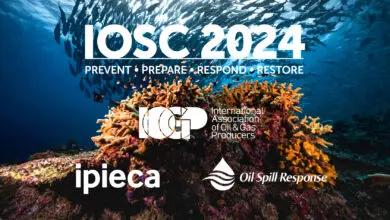
 Spatially-aware applications are at the forefront of the digitalisation revolution, providing the energy industry with new revenue and value-producing opportunities. Geomatics is at the heart of facilitating this revolution and ensuring our industry can operate with the highest levels of data quality.
Spatially-aware applications are at the forefront of the digitalisation revolution, providing the energy industry with new revenue and value-producing opportunities. Geomatics is at the heart of facilitating this revolution and ensuring our industry can operate with the highest levels of data quality.
The IOGP Geomatics Committee publishes standard data exchange formats, rich with important metadata, that bring clarity and consistency to the ever-growing lake of data we work with daily. To ensure that our new and existing digital applications can consume this data correctly with minimal user intervention, it is imperative that we can trust and verify the integrity of the underlying calculations and operations.
GIGS, or the Geospatial Integrity of Geoscience Software, is a robust testing regime that provides software developers and users with the means to evaluate an application’s capability in establishing and maintaining geospatial/geodetic data integrity.
GIGS has provided industry good practice on geospatial integrity for over a decade and during 2019/20 a dedicated Geomatics GIGS Working Group: Josh Townsend (BP), Rafael Santos Genro (Petrobras) and Richard Wylde (ExxonMobil – retired), undertook a significant revision of the framework. The objective being to develop and deploy a revised GIGS testing platform and test dataset, with greater efficiency, usability, and applicability – fit for the challenges and opportunities of the digital world.
This has culminated in the generation of a modernised and simplified framework with targeted, flexible tests and reduced complexity that will form the basis of an online testing portal, closely integrated with the EPSG Dataset.

The new GIGS Task Force, chaired by Josh Townsend (BP), are leading the webification, documentation revision and update of the GIGS test dataset to accompany the new test series. The latter will ensure that the industry standard data exchange formats (specifically revised P7/17, P6/11, P1/11) are included in the test dataset and the scope is expanded to include key geodetic developments since the original dataset was published.
Work has recently started on the build of the online portal, in collaboration with a specialist developer. There will be a user-friendly scoring system and improvement-identifier, consolidated and concise guidance, and easy to access help and advice.
After engagement with key stakeholders across the geospatial and energy industries, the new GIGS Platform is due to be released in early 2021.
Richard Wylde, a former Geomatics Committee Chair, says – “Modern agile programming techniques may be efficient, but they rely significantly upon Trust. When so much reliance is placed upon correct position, GIGS provides a standard toolset with which developers, vendors and clients can Verify the geospatial integrity of an application.”
If you want to gain an insight into the work of the Task Force and the importance of geospatial integrity, visit https://www.iogp.org/geomatics/ or contact Geomatics Manager at lks@iogp.org.



